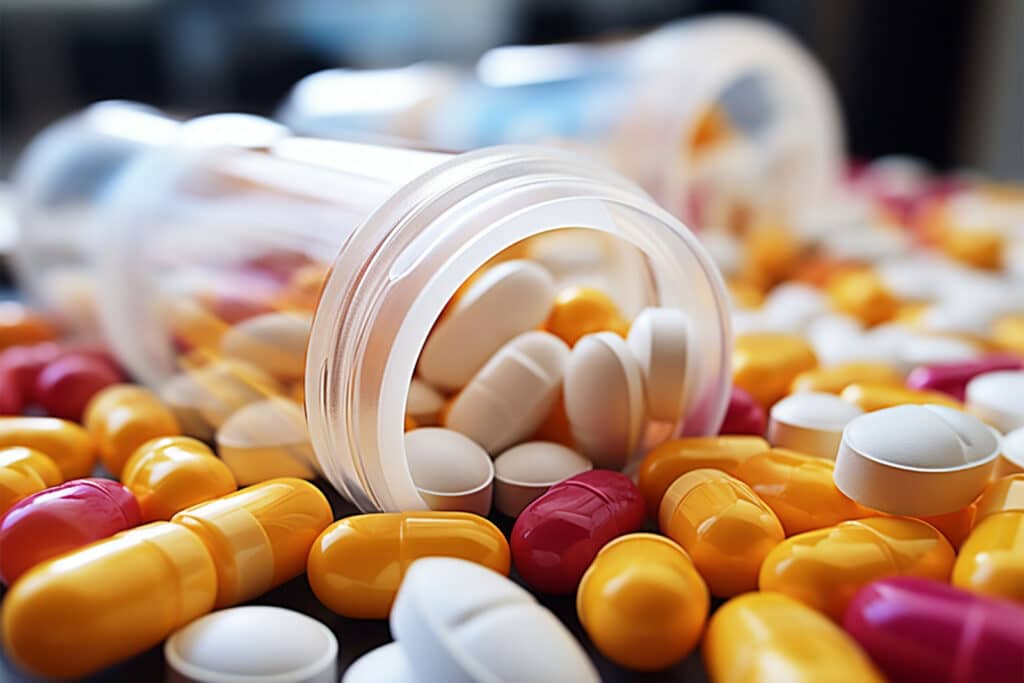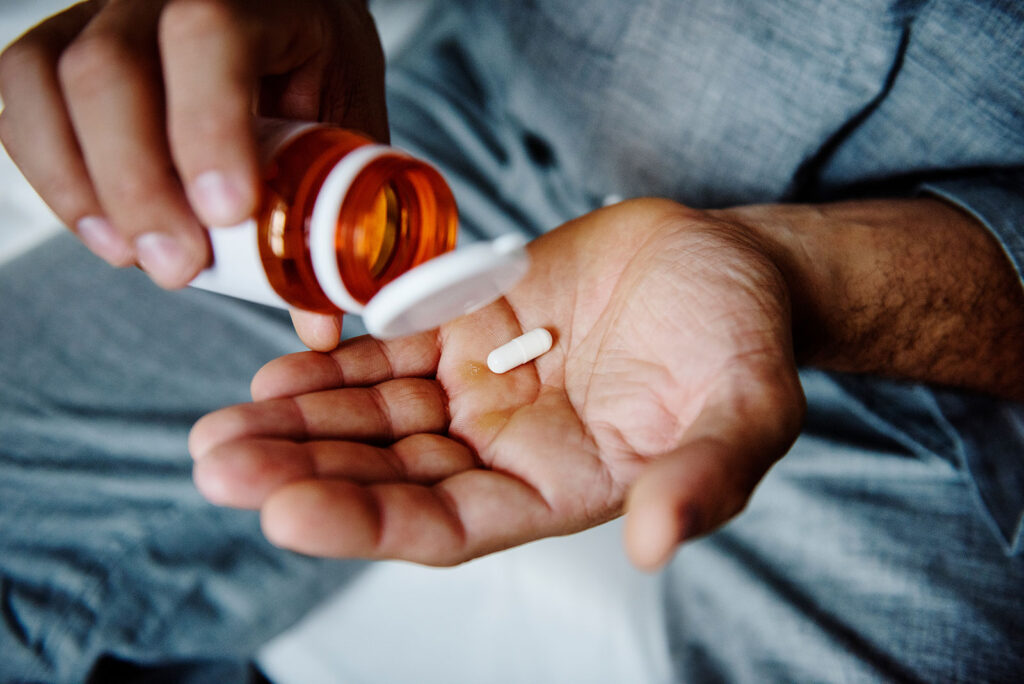Using a stimulant drug may seem like an effective way to make it easier to study late at night or to have enough energy to participate in an athletic event. However, even if you use a prescription stimulant by a doctor, there is a chance that you may become dependent on it. Furthermore, you can become dependent on something that you may have only used for a short time or in a relatively small amount, leading to drug addiction and suffering with its other side effects that could send you to a substance abuse treatment center for intervention.
Table of Contents
What are the Different Types of Stimulants?
According to the Substance Abuse and Mental Health Services Administration (SAMHSA), stimulants fall into a number of groups and have a range of uses and indications, these are amphetamine-type stimulants, cocaine, and other stimulants.

Amphetamine-type stimulants are said to be a broad category of drugs that includes both legal and illegal compounds. Amphetamines, methylphenidate, amphetamine derivatives such as methamphetamine, and cathinone (“bath salts”) are among them.
On the other hand, cocaine is a potent stimulant derived from the coca plant leaves. Cocaine has certain medical uses; it is the only known substance that can act as an anesthetic and also reduces the size of blood vessels to minimize bleeding during medical procedures.
However, the majority of cocaine is taken recreationally and purchased illegally. Illegal cocaine may be blended with other stimulants, such as amphetamines or opioids (e.g., fentanyl). Cocaine can also be converted into a crystal form known as crack cocaine.
Meanwhile, other stimulants that are widely accessible contain chemicals such as nicotine, which can be discovered in cigarette products; caffeine, which is present in various food and beverage items; and a nasal decongestant–pseudoephedrine.
Anyone Can Become Dependent on Adderall or Other Stimulants
Typically, those who suffer from other mental health conditions, such as depression or anxiety, have a higher risk of becoming addicted to prescription drugs or illicit drugs. However, it’s worth noting that anyone can develop a problem as these substances impact your nervous system. Therefore, you may find that you are consistently increasing your drug dose of choice or taking it more frequently to see any effect.
Common Symptoms Related to Stimulant Withdrawal
You may notice a negative impact on your physical and mental health if you stop using prescription or illicit stimulants for more than a few hours. Common physical withdrawal symptoms may include a sharp increase or decrease in weight, body aches or chills, and an inability to speak clearly. You may also notice changes to your heart rate and blood pressure, making it difficult to stand or remain in control of muscle movements.
In addition, you may feel irritable, anxious, or as if something just isn’t right for several days or weeks after you stop taking your preferred stimulant. It’s also possible that you will have trouble falling asleep or that you will sleep more than usual during the detox period. In some cases, sleeping more than usual is your body’s way of making up for the fact that you didn’t get enough rest while using.
Finally, you may be paranoid, hallucinate, or otherwise perceive things that don’t actually exist. This may contribute to an inability to sleep or otherwise function properly while detoxing. As your body readjusts, you may notice that you don’t have the same level of passion for things that you might have enjoyed in the past. If you have a history of depression or suicide, it may be a good idea to seek help immediately, as you may be at a higher risk of harming yourself or others.

What to Expect While Detoxing
The duration and severity of symptoms you’ll experience while detoxing depends largely on how long you used and how much you were using before quitting. For those who used a prescription medication as directed, detox may only last a few days and include mild symptoms. For those who ignored the directions or who used illicit substances, the detox period may last several weeks or months and feature extreme symptoms for several days or weeks after quitting.
Generally, most symptoms should clear up within two to three weeks after you stop using. However, you may experience cravings and bouts of depression or anxiety for several months or years. It’s possible that you will always have at least mild cravings or mental health issues related to stimulant use.
It may be worthwhile to participate in an outpatient program treatment plan designed to help those who need help to stay sober. You may also want to consider working with a mental health professional to address the potential causes of your addiction. For instance, you may have started using because you were afraid that you’d be considered a failure if you weren’t a sports star and perfect student.
By coming to terms with the idea that it’s acceptable to fail every so often, you may find that you no longer need drugs to feel good about yourself. Ultimately, you’ll stop using or find that your cravings are more manageable because you aren’t looking for an escape from reality.
What Does the Detox Process Look Like?
If it can be done safely, you may be asked to stop using immediately as opposed to tapering off over time. While this may result in more extreme symptoms, it also means that your body will be able to recover faster. Conversely, tapering is generally recommended for those who aren’t physically or mentally able to deal with the trauma that the body experiences after being deprived of something it craves.
As you might expect, tapering generally produces milder symptoms but takes much longer to complete. Ideally, you’ll consult with a medical professional before making a decision, and it may also be best to go through the detox process in a hospital or other clinical setting. This will minimize the risk that you hurt yourself, hurt someone else, or otherwise deal with a situation that might require immediate intervention on your own.

Medication May Help With Your Worst Symptoms
Another potential benefit to going through detox in an inpatient setting is that you may have better access to medication for your symptoms. A physician may help ease the physical pain you’re experiencing or help reduce the mental health issues you’re dealing with. Medication may also help you regulate your sleep cycle, help with appetite, or otherwise make it easier to overcome the temporary stress that you’re putting on your mind and body.
You May Have to Go Through Detox Multiple Times
One of the hardest things to accept about addiction is that you’ll never truly be over it. In fact, dealing with addiction may be especially challenging after going months or years without using because you may believe that you can survive using cocaine one time or taking just one prescription pill to help you stay awake. However, the truth is that a relapse can happen at any time, regardless of how well you were taking care of yourself before it happened.
Therefore, it’s possible that you’ll need to go through the detox and recovery process more than once during your journey to a sober lifestyle. It’s important to remember that relapsing doesn’t mean you are a failure or will never get sober. Instead, you should focus on the fact that you were strong enough to seek the help that you needed.
If You’re the Friend or Family Member of an Addict
Living while being addicted to stimulants can be extremely difficult regardless of how well an individual may seem to function. However, it can be just as hard to be the friend or loved one of an addict. This is because you know how much damage a person is doing to their mind and body but have no way to put a stop to it.
While it’s unlikely that you can forcibly commit someone without that person’s consent, there are ways that you can help. Most importantly, you should stress that you’re always available to talk or to simply listen to that person’s problems.
In addition, you may want to provide information about available resources to those addicted to stimulants or anything else. Although your friend or loved one may not seem interested in what you have to say, it may start that individual on the path to getting sober.If you are ready to overcome your dependence on stimulants, the folks at Illinois Recovery Center are ready to help. We offer a variety of programs that are tailored to meet your needs and promote a lasting recovery. Feel free to call us right away or contact us through our website to learn more about services or enroll in a detox program.
Related Articles:
- Hallucinogens
- Benzodiazepine
- Medication-Assisted Treatment
- Marijuana
- Aftercare
- Kratom
- Ecstasy
- Inhalants
- Antidepressants
- Opiates
- Heroin
- Opioids
- Substance Abuse in Adolescence
- Prescription Drugs
- Cocaine
- Alcohol
- Stimulants
- Dual Diagnosis
FAQ
What are the withdrawal symptoms of stimulants?



